Why invest in Austrian real estate and 6 ways to get income from investments
Basics of investing in Austrian real estate and ways to get income from investments - rentals, funds, etc.
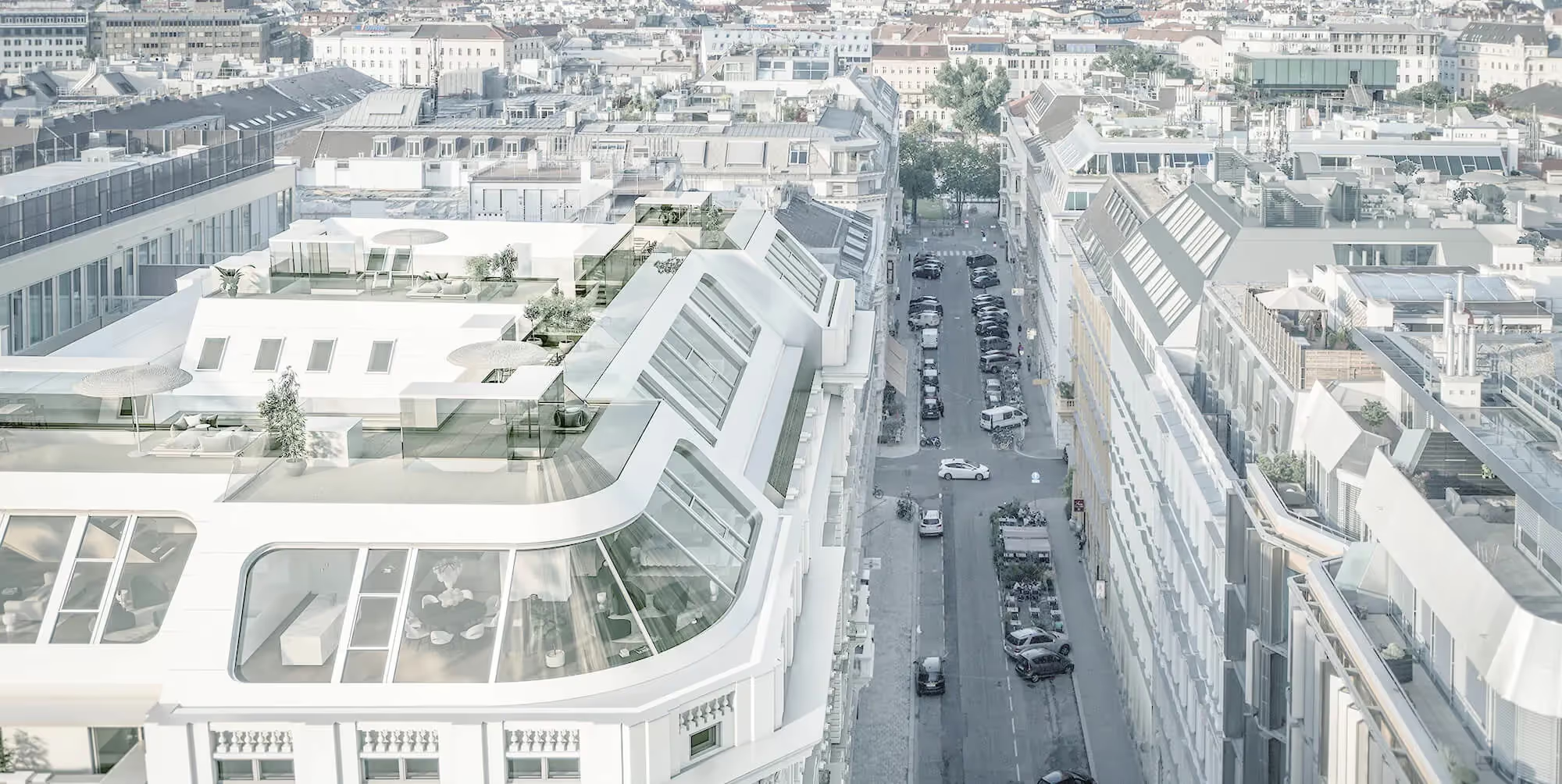
Right now Austrian real estate is gaining popularity among investors worldwide. Even amid the global economic crisis, this country is stable, economically safe and it guarantees a high level of security for its citizens. According to Mercer's 2019 annual survey, the Austrian capital Vienna topped the Quality of Life Ranking for the tenth consecutive year.
The Austrian economy is recovering at a faster pace compared to other European countries. Currently the capital is favorable due to the demand for residential and commercial real estate in Austria, combined with the resumption of previously frozen civil construction projects, as well as the stabilization of the price levels.
Next, we will review the key aspects of investing in real estate in Austria to find out the most profitable way to invest your money.
Rental income
PURCHASE OF REAL ESTATE TO RENT IS ONE OF THE MOST COMMON INVESTMENT SCHEMES. THIS ARRANGEMENT IS SUITABLE FOR BOTH RESIDENTIAL AND COMMERCIAL PROJECTS.
In this case, the main source of your profit is rent that will come directly from your tenants. According to the Austrian Rent Law, the local government does not regulate the minimum and maximum amount of rent. It should correspond to the price of your segment, cover all costs and provide a stable income. Depending on the region, the average return on rental property in Austria ranges between 3-5% per annum. For example, the average rent in Vienna is EUR 16-20 euros per sq. m, while in Carinthia or Lower Austria you can find rental properties for EUR 9 per sq. m.
To determine the optimal rental level in the country, a rent index is collected and regularly published. Tenants and landlords can track the dynamic rental value of real estate throughout the country over the past two years with this information.
Initially, the amount of rent and the revision terms are regulated in the agreement between the tenant and the property owner. The revision of the price should occur once a year, on April 1. An increase in the rental price can take place in case the consumer price index rises. However, it is worth noting that the increase of the rental fees cannot exceed the growth rate of the property value. For instance, if the market value of housing has grown by 10%, then the rent may rise by no more than 10%. The annual increase frequently reaches 4-5%. See the table below for the average rent in Vienna and the Austrian federal provinces.
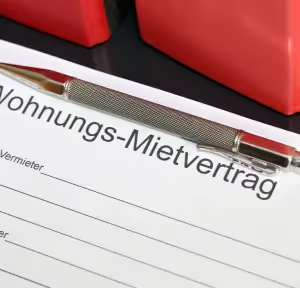
According to the Central Bank of Austria, about 30% of Austrian families live in leased rental property. Over the past 10 years, rental prices have increased by 35%. Last year alone, this amount grew by another 3% due to the fact that the demand for Austrian residential property is very high, and it can be expected that the cost of rent will continue to grow in the future.
It is essential to understand that taking on the role of a landlord is a big responsibility. You will have to search for potential tenants, look after the property so it stays in good condition, as well as supporting your tenants, if needed when things may need repairing, along with paying the taxes and service fees. Of course, if you have done your research and have thought over the whole process, the risk of possible complications can be reduced to a minimum.
Need help? Try our legal service
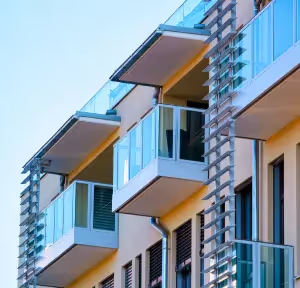
There is another option for resolving and looking after any potential issues with your property – hiring a realtor who will manage the property on your behalf. In this case, you do not have to find or deal directly with the tenants, or handle repairs and maintenance. According to Federal Law No. 297 of 1996, the cost of a realtor's services directly depends on the duration of the contract:
- For contracts up to 3 years, the commission is equal to the amount of the monthly rent.
- More than 3 years – two monthly rents.
- Indefinite contract - monthly rent.
- Sublease agreement - monthly rent.

Let's take a look at a simple example of a property in Salzburg. You buy a 1-bedroom apartment of 50 sq m. in Salzburg. The cost of such property is EUR 320,000. The annual rental income (at a rate of 17.78) is EUR 10,668. From this amount one must pay the following taxes and utility bills:
- Services of the management company, repair fund, garbage collection and cleaning of the building, water, sewerage and elevator – EUR 50-100;
- Heating – EUR 40
- Internet and TV – EUR 40
- Income tax – 25% of income
In this case, the estimated net profit is EUR 6,441.
Resale
ANOTHER WAY TO MAKE MONEY IS PURCHASING PROPERTY AND FURTHER RESELLING IT.
With the onset of good market conditions, you can profit from further resale of your property at a higher value some time after the acquisition or after renovation. Within Austria, it is important to take into account several nuances of this process:
- According to the Auslandergrunderwerbsgesetz Law on the Purchase of Real Estate in Vienna by Foreigners (each federal territory has its own law regulating the purchase/sale of property for foreigners), income from the resale of property purchased after 1st April 2002 is subject to income tax of 25%. In other words, you must set aside 25% of your profit (the difference between income and expenses) to handover to the state.
- If the property was purchased before the 1st April 2002, the income tax will be 3.5% of the sales value.
- Provided you have owned property for over 10 years, you have the right to claim inflation compensation of 2% for each year of ownership. The refund amount cannot exceed 50%.
Real Estate Prices in Austria
Property remains one of the most reliable forms of investment. At first glance, it may seem that any real estate will only get more expensive over time, however this is not true. The real estate value can work in both directions - both increase and decrease.
The Covid-19 pandemic has had a strong impact on the Austrian real estate market. The local housing sector thrived in 2017. By the end of the year, total investments in the real estate sector amounted to EUR 5.9B. During the first half of 2020, this figure was only EUR 1.6B. According to the Central Bank of Austria, the average drop in investment over the course of 20 years was about 30%.
During the pandemic, there was a redistribution of investment flows in Austria. Foreign investors accounted for almost three quarters of the total number of all investors. The increased interest from foreigners, even during the COVID crisis, indicates the relative stability and security of the local real estate market.
Simply speaking, real estate value is a balance between supply and demand. The more new residential properties that are built in a country, the lower the cost of existing real estate. Since 2019, the lion's share of Austrian residential projects has frozen, which affected the country's housing stock significantly. During 2017 and 2018, about 190,000 sq. m (2017) and 300,000 sq.m. (2018) of new residential areas were created. During 2019, the housing stock in Austria was replenished by 160,000 sq.m only. According to the forecast of specialists from the Central Bank of Austria, provided that anti-epidemic measures are weakened by Q4 2021, the local real estate market will be able to replenish by another 160,000 sq.m. As for property profitability, in 2019 this index was 3.5% and in 2020 it rose to 4.25%.

Another important advantage in Austria is the high demand for residential real estate. There are three reasons for this; the extremely low rate of urban construction in the 1990s, the increase in the number of expats and surges in population growth since 2012. From 2013 to 2019, the country had been building about 47,000 new residential units a year, but even this number could not meet the increasing demand for housing.Since 2010, the value of real estate in Austria has remained stable. Even in 2019 and early 2020 the value grew by 3% and 2.5% respectively. It is worth noting that not only the property prices have changed, but also the cost of construction work, which increased by almost 8% by the end of 2020.
Residential property price index in Austria in 2010-2020 is in the table below.
Flipping house

The Flipping House scheme consists in buying and reselling property within a short period of time (often 3-4 months) at a higher value. There are two approaches to solving this issue:
- Reconstruction. In this case, you have to buy inexpensive, but potentially profitable real estate, which can drastically increase in value after renovation and reconstruction.
- Overexposure. Instead of renovating and improving the property state, you can buy a unit in a fast-growing market, and after a few months, you can sell when the price reaches its peak.
Unfortunately, in Austria the Flipping House scheme is justified in rare cases. The Austrian authorities suppress all attempts at speculative real estate transactions, reinforcing their powers with a number of laws. Thanks to such measures, the local real estate market is very stable, but the same initiatives make it unsuitable for short-term investment.
Private investment fund (real estate investment trusts)
A private foundation (Privatstiftung) is a legal entity created for the purpose of disposing of certain assets for clearly defined purposes. Since 1993, the law "On Private Foundations" has been in force in the country, according to which:
- A private foundation does not issue shares and does not have shareholders.
- It has no ultimate owner, and such a fund belongs to itself.
- It does not require disclosure of the identity of the beneficiaries and financial reporting.
- It is subject to tax incentives.
The key legislative act that regulates the activities of such funds is the Federal Law "On Real Estate Funds" (ImmoInvFG). They are supervised by the Financial Market Authority (FMA).
To establish an investment fund, it is necessary to contribute an authorized capital of at least EUR 70,000. Despite the fact that this legal entity has no shareholders, it still has a founder – a legal entity, an individual or a group of individuals, regardless of residency.
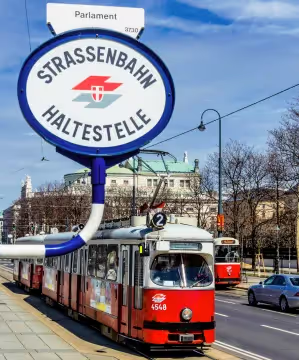
Each fund must have:
- Articles of Association indicating the legal address, name and composition of the board, amount of capital, etc.
- Board of directors, which consists of at least 3 people, two of whom are EU residents.
The main advantage of an investment fund is a preferential taxation system. During the establishment of the fund, each of its partners has the right to contribute their real estate as the capital of the enterprise, which will be managed by the fund. In this case, they will be charged a tax of 2.5% instead of 25% (provided that all statutory documents were submitted to the tax office on time, otherwise, taxation will be counted at a rate of 25%).
Another important advantage is that investment funds can sell real estate donated to them from individuals at a reduced income tax rate (2.5%).
Investment funds can also act as the lessor of the property transferred to them, but in this case the rental income will be taxed at 25%.
Real estate investment groups
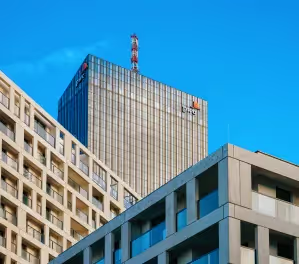
This is a good option for investors who want to own rental property but are not willing to act as a landlord on their own. This is how it works; investment, development or brokerage companies buy or build a number of buildings. After the approval of the project and the actual start of construction work, the property is put up for sale. At this stage, the investor can purchase one or more property units. Investments can be made at any stage of development or after the transfer of real estate for use.
All responsibility for real estate maintenance is assigned to the investment group. In fact, it manages property at all stages: construction, repairing, cleaning, advertising and finding tenants. In exchange for management services, the company collects a payment from the owners (a percentage of the profit or property area).
Limited partnership (kommanditgesellschaft)
Such a partnership may consist of at least one member (complementarity) and a limited partner. The members of the partnership bear unlimited liability to creditors and other persons. The liability of a limited partner is restricted by the amount of capital that is registered as a contribution to the partnership fund.
A limited partnership operates on the basis of a memorandum of association which defines all the rights and obligations of the parties, contributions and shares of participants, features and strategy of asset management, decision-making procedure, distribution of profits and expenses, etc. The partnership must also be acknowledged on the commercial register of Austria.
Any transactions carried out by a limited partnership are not subject to income tax. It is charged according to the net profit of the partners. Compulsory accounting is required only for partnerships with an annual turnover of more than EUR 700K.
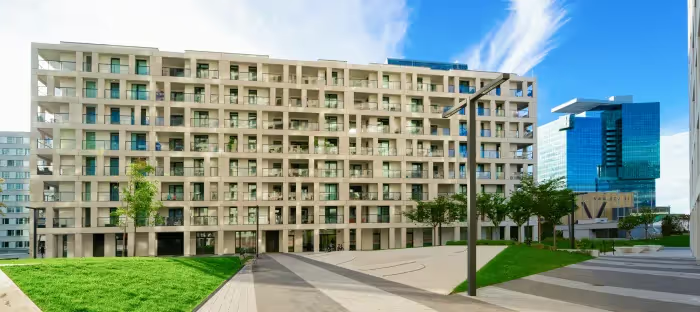
In the context of real estate management, such a partnership is created for the purpose of purchasing one or more real estate units, which, in turn, will be leased out on behalf of the partnership. All the partners will retain profit in proportion to their share in the capital of the enterprise. If the market climate is beneficial the partnership can sell its assets with a large profit, which will be divided among all partners, and then cease to exist.
Why invest in real estate

Investing in real estate is a good way to diversify your investment portfolio. This type of asset is classified as competitive and profitable. At the same time, the real estate market is much more stable and predictable than investments in securities.Property can be rented, renovated or sold at any time. Unlike stocks or bonds, such an asset cannot be depreciated and is less dependent on market fluctuations, the competence of managers or the good faith of debtors.
Real estate has a low and in some cases negative correlation with other major assets in the investment portfolio. While securities are dropping, on the contrary, real estate is increasing in value. This dependence means that adding real estate to the overall asset portfolio will help to reduce its volatility. In other words, it will downsize fluctuations in the total value of the investment portfolio in the short term. Moreover, the more properties that are in your investment portfolio, the better hedging is. Property income can potentially cover losses associated with other more risky assets.
Hedging Inflation
Investing in real estate is very helpful in reducing inflation. The cost and demand for property directly depends on the growth of the state's economy, which, in turn, is supported by GDP. In other words, the higher the economic performance in the country, the more the demand for rental property increases and accordingly, its price rises. Along with the demand for rental housing, both the interest and the price of real estate in the primary and secondary market are growing, which leads to an increase in homeowners' capital. As a result, real estate tends to support the purchasing power of capital, bypassing some of the inflationary pressures on landlords.
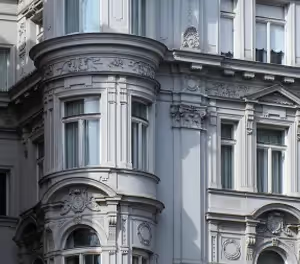
Another tool that is not available when investing in other assets is leverage. Its application is possible through the use of mortgage lending. Austrian law allows foreign citizens to purchase local real estate through property loans, subject to payment of at least 20% of the cost.
If we consider this situation from the point of view of investment, it turns out that by paying only part of the price of an asset, you can fully own it. Even if the home loan has not yet been paid off, you are already the owner and have the right to rent it out. This arrangement is not possible with any other asset. For example, if buying a block of shares, you would not be able to pay only 20% of the price to be considered its full owner, you would have to pay in full.
Highlights
01
The Austrian real estate market is gradually recovering from the 2019 downturn. The construction of previously frozen projects have resumed and the level of prices for the sale and rent of housing is stabilizing.
02
The most profitable options of property investment are renting it or reselling it at a higher price.
03
Resale of Austrian housing is not always a profitable undertaking. Local legislation of residential property is aimed at countering real estate speculation. The main disadvantage is the need to pay 25% of the income tax on the profit received.
04
Ownership and effective management of local investment properties can be carried out through legal entities; private investment funds, investment groups or partnerships.
Share your contact details, and we will happily assist you in finding your dream property







-p-2000.webp)
.avif)
%20(2).avif)





